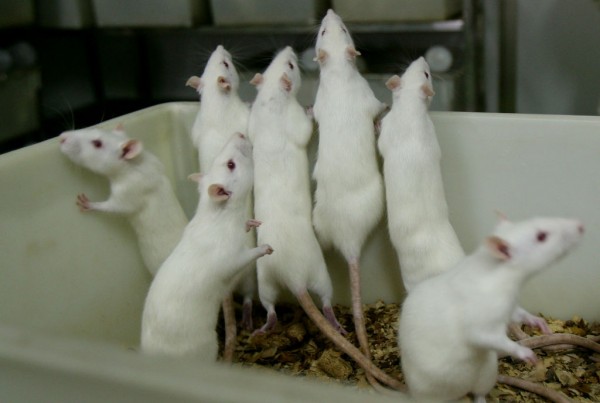Study in Mice Reveals How a Virus May Trigger Diabetes
A new study done in mice has presented how an enterovirus transmitted through the intestines, known as coxsackievirus B type 4 or CVB4, "may be able to trigger diabetes" in individuals who develop the virus.
New research has found a possible mechanism for causing diabetes in people with CVB4. This said the study in which the Cell Reports Medicine journal may be valuable as well, in the exploration of whether COVID-19 can trigger diabetes, too.
Based on the report of the Centers for Disease Control and Prevention, "Diabetes is an ongoing health condition," affecting how the body of a person is transforming food into energy.
As an individual eats and drinks, his blood sugar rises. More so, his pancreas produces the hormone insulin, allowing cells to access this blood sugar.
Nonetheless, reports on the research indicated, one who has diabetes, specifically type 2 diabetes, may not be able to "make good use of insulin or produce enough of it."
ALSO READ: Study Reveals Link Between Long-Term Use of Medication for Acid Reflux and 24% Increase in Diabetes

Study authors used mice ‘that had been grafted with human pancreatic cells with CVB4,’ and human and mouse insulin-producing cells that had the virus, as well.
Link Between Types of Viruses and Diabetes Types
The most common type of diabetes, by far, is type 2 diabetes, accounting for roughly 95 percent of all diabetes cases in the adult populace.
The American Diabetes Association considers both forms of the condition to be resulting from a combination of hereditary and environmental factors.
Researchers believe, for type 1 diabetes, viruses are a single aspect of these environmental factors. Specifically, the study suggests that.
For type 1 diabetes, scientists believe that viruses are one aspect of these environmental factors. Specifically, the study proposes that a family of viruses called enteroviruses, which can lead to a variety of illnesses with symptoms of "neurologic, respiratory, skin and gastrointestinal" conditions, may be key viral triggers for this form of diabetes. Scientists remain unsure, though, exactly how such a triggering function takes place.
Study in Mice
In this new study, the investigators sought to understand better how enteroviruses may trigger type 1 diabetes.
To achieve results, the stud authors used mice "that had been grafted with human pancreatic cells with CVB4," and human and mouse insulin-producing cells that had the virus, as well.
Following the conduct of numerous experiments with these infected cells, the scientists detected a "complex chain of events" that may cause the trigger of diabetes.
Furthermore, the study investigators also observed that CVB4 infection brought downregulation of a protein known as URI that controls a variety of cellular functions. This particular downregulation activated a cascade of molecular occurrences.
This, in turn, led to the silencing of the Pdx1 gene, which directs the beta cells' function in the pancreas. Essentially, the said beta cells yield insulin.
DON'T MISS THIS: 5 Best Foods to Boost Serotonin and Enhance Mood
Silencing of the Pdx1 Gene
According to Spanish National Cancer Research Center researcher, Dr. Nabil Djouder, also the study's lead author, silencing of Pdx1 leads to the "loss of the identity and function of the beta cells," which turns out to be more like "alpha cells responsible for the rising levels of blood glucose," and therefore, resulting in hyperglycemia and succeeding diabetes, "independently of any immune responses."
Helping to validate their study findings, the scientists noted that mice that had diabetes that overexpressed the URI protein were more tolerant of the changes in blood sugar.
Lastly, the study authors noted a link between the expression of "URI, Pdx1, and viral particles in pancreata" from individuals who have diabetes. For these researchers, this finding proposes a causal connection between enterovirus and human diabetes.
A Strategy for Prevention
To help make clear the mechanism behind the viral stimulation of diabetes as well, the research raises the possibility of using antiviral treatments too, with drugs that hinder the Pdx1 silencing for diabetes treatment and prevention.
Specifically, the study investigators revealed that the DNA methyltransferase inhibitors, which prevent a protein involved in the Pdx1 silencing, reinstated such an expression and tolerance to glucose in mice with diabetes.
The researchers believe their work may have implications as well, for COVID-19. Similarly to their investigations, explained Dr. Djouder, some recent clinical observations have linked SARS-CoV-2, the virus that causes COVID-19, "To diabetes in infected patients."
IN CASE YOU MISSED THIS: 6 Reasons Why You're Gaining Weight Unintentionally
Check out more news and information on Diabetes at MD News Daily.
Oct 26, 2020 08:00 AM EDT





